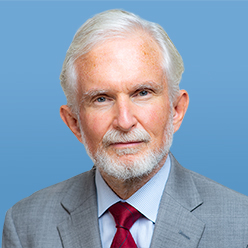Among the lessons from the successful raid on Osama bin Laden's refuge is the value of cooperative relations with Russia.
Consider that until recently, Pakistan enjoyed a chokehold on supplies for American and other allied forces in Afghanistan. A trickle of the vast logistical requirements of the war came in from the north, by air through Kyrgyzstan. The Pakistani leadership exploited its near-monopoly to extract massive aid from Washington and to limit American operations across the porous frontier region joining Pakistan and Afghanistan.
Now, Moscow does not want American policy in Afghanistan to fail, because the consequences would be dire for Russia. For several years, however, Moscow made no tangible contribution to the multinational effort in Afghanistan. This changed with the creation of the Northern Distribution Network, perhaps the most significant product of the "reset" of relations between Washington and Moscow. This network moves personnel, equipment and supplies into Afghanistan without involving Pakistan. Russia is the keystone of this network, with U.S. military aircraft in transit through Russian airspace around the clock and bulk cargoes on the Russian railway system, via the Central Asian republics, toward Afghanistan. Today, the northern route is as important as the southern route through Pakistan.
As Pakistan's monopoly on supply eroded, Washington expanded its active operations against terrorists inside that country, with armed drone aircraft, cross-border ground attacks and, most dramatically, the deep-penetration assault on bin Laden's urban hideaway. If Pakistan still retained its chokehold, could Washington have authorized the raid? Perhaps. Perhaps not.
Russia was not a direct contributor to bin Laden's death, but therein lies the lesson. The benefits of positive relations between great powers are often indirect and even unforeseen. Russia remains a Eurasian great power of vast dimensions and influence. For the United States, a generally cooperative relationship with Russia contributes to a Eurasia in which opportunities appear and flexibility develops for American policymakers. Without such a context, American policy options are fewer.
The same is true -- in fact, much truer -- for Russia in reverse. A positive relationship with the United States will open doors for Moscow in many fields and is essential for Russia's acceptance as a normal post-Cold War participant in global affairs. The indirect and unforeseen opportunities for Russia far outweigh any short-term compromises.
This is not to say that Russia and the United States are or can be genuine allies or partners across the board. The divergence between the two governments and societies is considerable and is likely to remain so. Both sides need to recognize the limits of their mutual interests, which are comparatively few, but also the benefits of avoiding mutual antagonisms. American policy toward post-Soviet Russia has all too often suffered from illusions and unrealistic expectations. At other times, however, the policy has suffered from reflexive Cold War attitudes and a refusal to appreciate that Russia has legitimate interests different from our own.
The secret to successful great-power cooperation is the realization that cooperation need not be limited to areas of mutual interest but can also develop in areas where each side's interests complement those of the other without unduly compromising one's own. Such a process requires realism and dialogue, shorn of outworn prejudices.
Washington and Moscow are home to advocates of an adversarial -- indeed, even hostile -- policy toward the other country based on little more than habit. These people can point to disappointments from previous efforts at "engagement" and argue that going it alone is preferable to compromise with the old Cold War rival. What these people on both sides fail to compute, or perhaps even recognize, are the opportunity costs.
Without the recent improvement in relations between the United States and Russia, there would be no significant northern supply route. Without that network, the United States would have had fewer policy options and less operational flexibility in its pursuit of bin Laden. Both countries have gained from the success of the operation against the terrorist leader, even though Russia played no direct role.
The simple but necessary lesson for Washington and Moscow is that cooperation breeds opportunities, while lack of cooperation yields nothing.
E. Wayne Merry, a senior associate at the American Foreign Policy Council, is a former American diplomat with experience in Russia and the Pentagon. This was written for The Washington Post.
